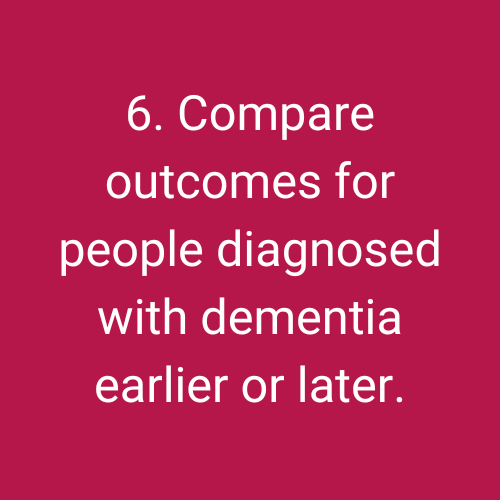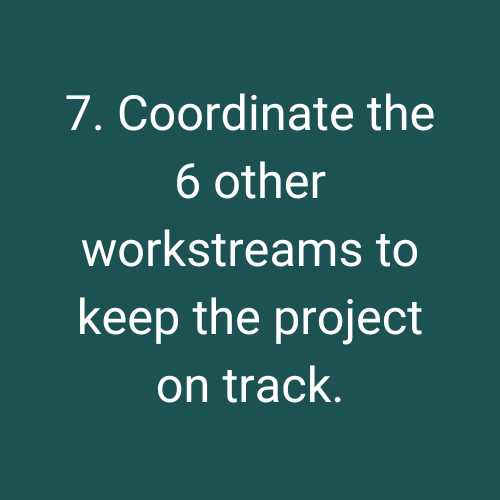Led by: University of Sussex,
Aims: We will compare people with dementia who are diagnosed earlier with those diagnosed later. We will look at the difference this makes to their treatment after being diagnosed and how it affects outcomes for both people with dementia and their carers.
Summary
Workstream 6 (WS6) will look at the difference in treatment, care, quality of life and other outcomes between those diagnosed with dementia early and those diagnosed at a later stage in the condition. It aims to answer the following questions:
- How do outcomes for people with dementia and their carers vary by diagnosis at earlier/later stages of the condition?
- What features of the service that diagnosed the person with dementia lead to better and worse outcomes for people with dementia and their carers?
- How do outcomes for people with dementia and carers vary by the different types of care offered after diagnosis?
WS6 will answer these questions using both quantitative (numbers or numerical data) and qualitative (data that is not numerical e.g. interviews) methods. We will use quantitative analyses to study the impact of earlier and later diagnosis of dementia (at 1, 2 and 3 years after diagnosis), the kind of services used, and care received on Quality of Life outcomes. We will find out what leads to good or bad outcomes.
Alongside this, we will interview people with dementia and carers to find out their experiences of ‘how’ and ‘why’ things happen at diagnosis and afterwards, and how these affect quality of life and other outcomes. These interviews will help us to understand how diagnosis impacts and affects outcomes for people with dementia and carers over time. They will help us to discover whether the progress of the condition when dementia is diagnosed makes a difference to care, quality of life outcomes and how the diagnosis and services are viewed by the person with dementia and their carer.
Through this work we will be able to help professionals understand how an early diagnosis of dementia could help people to live better with the condition.

1. Recruit 900 people with dementia and follow-up

2. Investigate inequalities and barriers to dementia care

3. Compare costs and use of services with outcomes

4. Compare outcomes of self-funded with local authority funded care

5. Investigate the process of care planning and decision-making

6. Compare impact of late and early diagnosis on outcomes

7. Project coordination
Latest News
No news yet. We will update you on our progress, later in the project.
